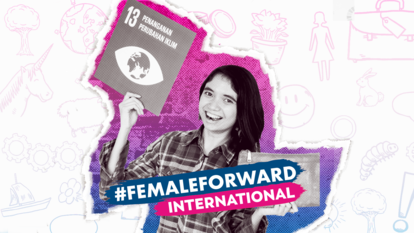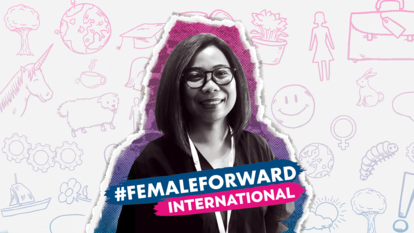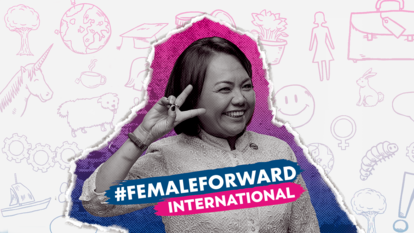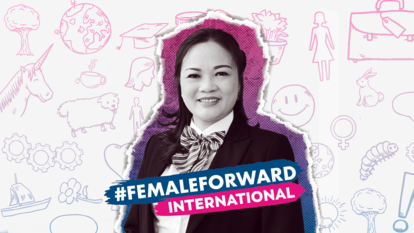Female Forward
Why women empowerment is crucial in Southeast & East Asia

Societal norms continue to influence the status of women in Southeast Asia. But in many areas, they have shown that they can conquer obstacles and break stereotypes.
#FemaleForwardInternational showcases five of the many fields where women have risen above hierarchies and conquered gaps. It features individual achievements that show how businesses and communities thrive when women take on bigger roles.
Indonesia is the 16th biggest economy globally, and the largest in southeast Asia. It is also one of the most populous countries in the world. All of this has an environmental effect: Indonesia is one of the world’s largest emitters of greenhouse gases.
The world’s largest island country is also highly vulnerable to climate change. Indonesia addresses this by integrating the United Nation’s Social Development Goals (SDGs), including taking urgent action to combat climate change and its impacts, in national and local development planning.
Women, like sociopreneur Vania Santoso, is stepping forward to mitigate the effects of climate change.

Malaysia is Asia’s cultural melting pot. It is a multi-religious and multi-ethnic nation, which becomes a cause of the country’s own internal tensions.
It has a large Muslim population. While the government generally promotes women’s rights, practices like female genital mutilation and child marriage are condoned under the blanket of religion. The Islamic Family Law is also gravely biased towards men, with women only getting support if she is obedient to her husband.
This has to change. Women, like Azareena Abdul Aziz of Sisters in Islam, are in the frontline of the movement.

Women in politics
The Philippines placed second in East Asia and the Pacific region in the latest Gender Gap Report. Its global ranking dropped from 8th in 2019 to 16th in 2020, falling in the political empowerment index. This is attributed to the significantly lower female representation in the Duterte Cabinet. The current Philippine president is infamous for his sexist comments.
Women, like Dinagat Islands Governor Kaka Bag-ao, is standing up against misogyny, and proving that female leaders have a place in politics.

Vietnam’s economy is booming. It has become an attractive destination for investment from all over the globe. Banking on its manufacturing industry with labor-intensive products like clothing and textile, and footwear, the country is competing with China in terms of low-cost labor.
Some 50% of the country's workforce is female. In spite having the same qualifications and performing the tasks as male, women get 30% less than salary.
Women, like business executive Bui Thi Suu, is implementing changes in the workplace, ensuring not just equal pay, but also equal opportunities.
